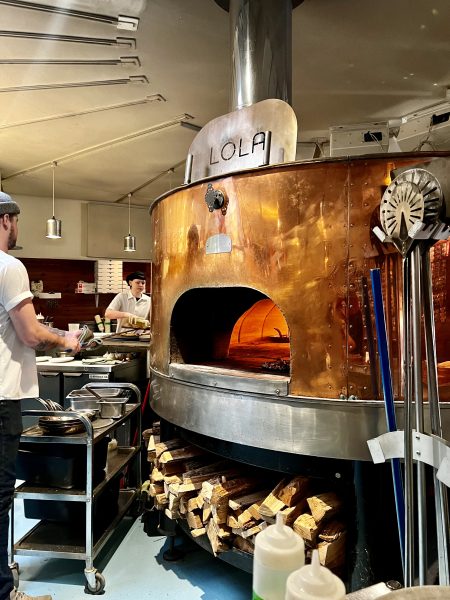Mindful streets, mindful streams
Community leaders gather in Hamline’s Klas Center to discuss how to promote awareness for cleaner water and a cleaner environment.
November 21, 2017
The mission is simple: let’s keep it clean! On Wednesday, Nov. 8 over 50 attendees gathered in Hamline University’s Klas Center to attend a roundtable conversation to promote clean water in the Twin Cities. The event was held by Metro WaterShed Partners, a consultant coalition project of Hamline University and other Minnesota environmental organizations. The coalition works to promote a public understanding of water pollution and what citizens can do to help maintain safe resources.
According to Capitol Region Watershed District, the watershed of the St. Paul area, a watershed is an area where rain and snow drains into a body of water such as a river, lake, or pond. In urban areas, water flows through streets carrying runoff pollution into drains that lead directly into lakes and rivers. The attendees of the event, largely teachers, city council members, and water resource managers, are devoted to community engagement and implanting practices to protect the water in the Twin Cities areas, and educating citizens to understand how water enters homes.
“It is depressing to talk about climate change, but the good news is that we are all here. We are here to talk about this,” Barr Engineering representative, Fred Rozumalski said. Rozumalski, along with other panelists, engaged in conversation with the community leaders about local climate change impacts and what strategies help to forward discussion.
A large portion of the discussion focused on how climate change and water pollution plays a societal impact on the people of the Twin Cities. In the densest populated regions of cities, the elderly, people with disabilities, and those who do not posses an air conditioner or heater feel the harshest effects of climate change. The increase in warmer temperatures for a longer period of time leaves more time for ticks and mosquitoes to spread diseases that can be detrimental to vulnerable populations.
With all of the damage that our environment has already suffered, and the lack of national environmental protection policies, attendees expressed that there is a rise in hopelessness among young activists.
“While things may look bleak nationally, there is a huge turnout at a the sub-national level,” Kristen Poppleton said. Poppleton is the director of programming at Climate Generation, a Minneapolis organization with a focus on youth from kindergarten to those about to enter the workforce. Climate Generation encourages younger people to attend panels, council meetings, and even to protest and lobby for policy change.
“Communities are doing their own planning,” stated Leslie Yetka, a programming director at FreshWater Society, an environmental nonprofit based in St. Paul. Yetka continued by saying when community members are educated about the intimacy of natural issues, there is an immediacy to responses.
This is the goal of Metro Watershed Partners’s current project, Minnesota Water – Let’s Keep it Clean! The media campaign promotes prevention of runoff pollution messages and manages the cleanwatermn.org website. Metro Watershed hopes to inform citizens to be mindful of the pollution on the streets of the Twin Cities, as this ends up in waste end up in our water. The speakers and attendees came to the general clusion that the involvement of younger generations is essential in keeping the environment and natural resources. Not only is the spreading and reposting of media campaigns important, but attending local meetings is crucial to the local protection of resources. To the roundtable, local action is manageable, practical, and what can save our globe.


